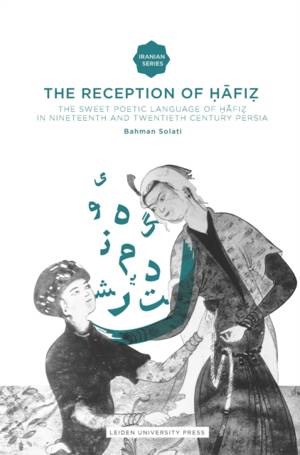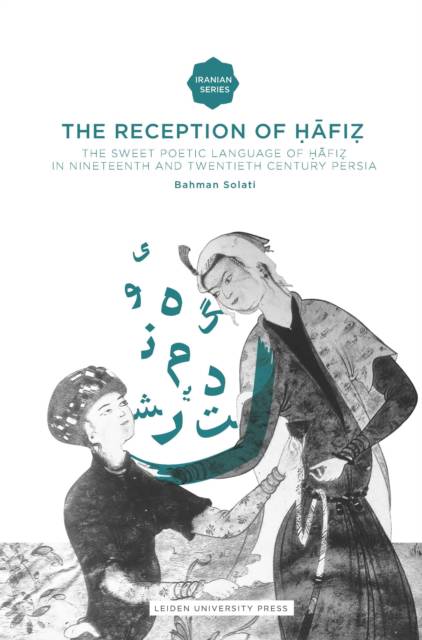
Door een staking bij bpost kan je online bestelling op dit moment iets langer onderweg zijn dan voorzien. Dringend iets nodig? Onze winkels ontvangen jou met open armen!
- Afhalen na 1 uur in een winkel met voorraad
- Gratis thuislevering in België vanaf € 30
- Ruim aanbod met 7 miljoen producten
Door een staking bij bpost kan je online bestelling op dit moment iets langer onderweg zijn dan voorzien. Dringend iets nodig? Onze winkels ontvangen jou met open armen!
- Afhalen na 1 uur in een winkel met voorraad
- Gratis thuislevering in België vanaf € 30
- Ruim aanbod met 7 miljoen producten
Zoeken
The Reception of Hafiz
The Sweet Poetic Language of Hafiz in Nineteenth and Twentieth Century Persia
Bahman Solati
€ 55,00
+ 110 punten
Omschrijving
"The quantity of scholarship on Persian literature is enormous. Yet works of literary criticism and analytical studies are a minute and newly-added portion of its entirety. With few and noteworthy exceptions, the works are agglomerated around the names of such giants of Persian literature as Hafez, Rumi, and Ferdowsi. In this book Solati demonstrates the influence of Hafez on the thoughts, poetic language, and philosophy of the nineteenth and twentieth century Persian poets, writers and critics. Omar Khayyám lived in the 11th Century. A Persian homo universalis, he was a mathematician, scientist, philosopher, astronomer and poet. He is believed to have written 200 to 600 Rubáiyát (quatrains) in Persian. His Rubáiyát has been translated into Arabic, Chinese, Dutch, English, French, German, Hebrew, Hindi, Russian, Urdu and many other languages. It has been published in numerous editions: precious volumes with jeweled bindings, artist's books, scholarly and critical editions, forgeries and fake editions, making The Rubáiyát of Omar Khayyám a perfect object for book collectors and lovers of poetry. Edward FitzGerald's translation of the Rubáiyát of Omar Khayyám has been one of the world's most popular books. Since the first version in 1859, new editions, reprints and translations have appeared in an almost endless flow, varying from plain text to highly decorated, illustrated editions and from almost microscopic miniatures to monumental, oversized volumes. FitzGerald's translation stands out, but there are hundreds of other translations, from many countries, and you will find them all in this book."
Specificaties
Betrokkenen
- Auteur(s):
- Uitgeverij:
Inhoud
- Aantal bladzijden:
- 300
- Taal:
- Engels
- Reeks:
Eigenschappen
- Productcode (EAN):
- 9789087281977
- Verschijningsdatum:
- 1/10/2013
- Uitvoering:
- Paperback
- Formaat:
- Trade paperback (VS)
- Afmetingen:
- 171 mm x 231 mm
- Gewicht:
- 430 g

Alleen bij Standaard Boekhandel
+ 110 punten op je klantenkaart van Standaard Boekhandel
Beoordelingen
We publiceren alleen reviews die voldoen aan de voorwaarden voor reviews. Bekijk onze voorwaarden voor reviews.











